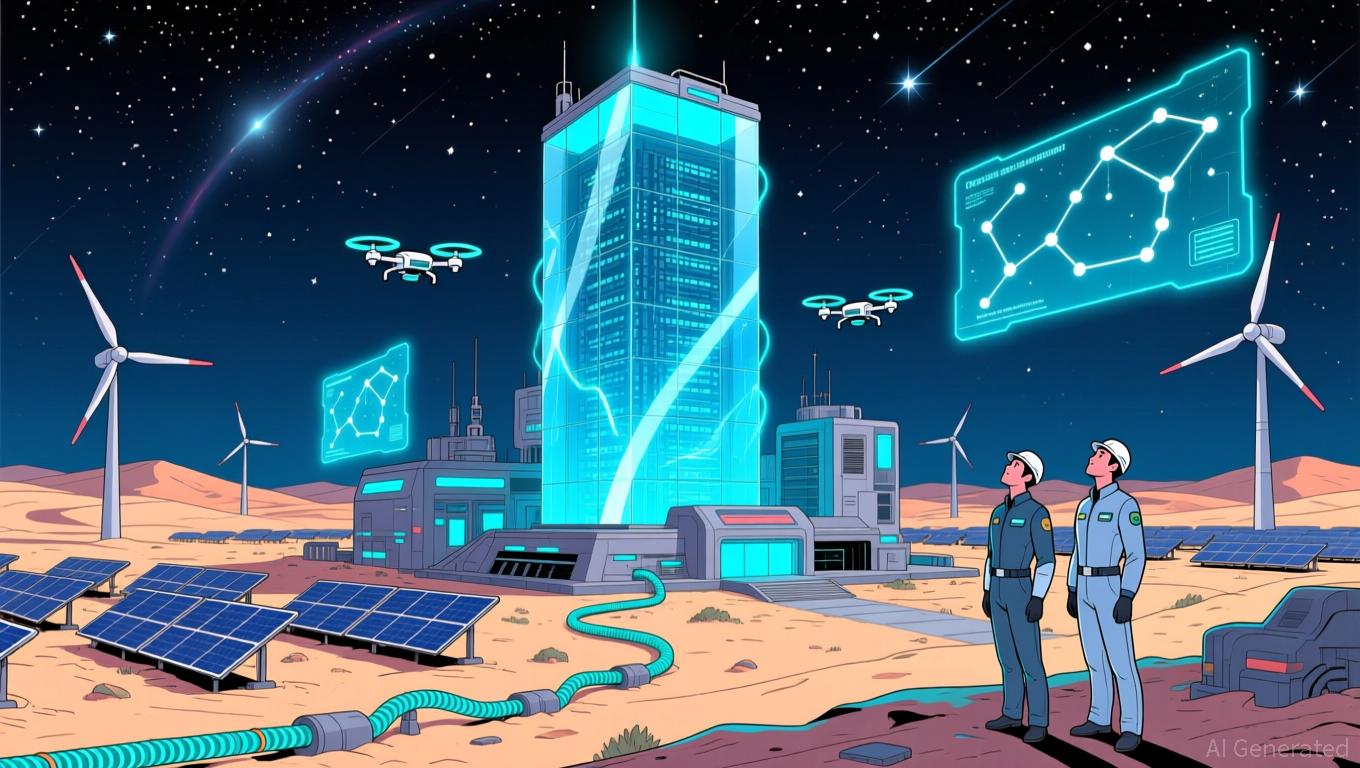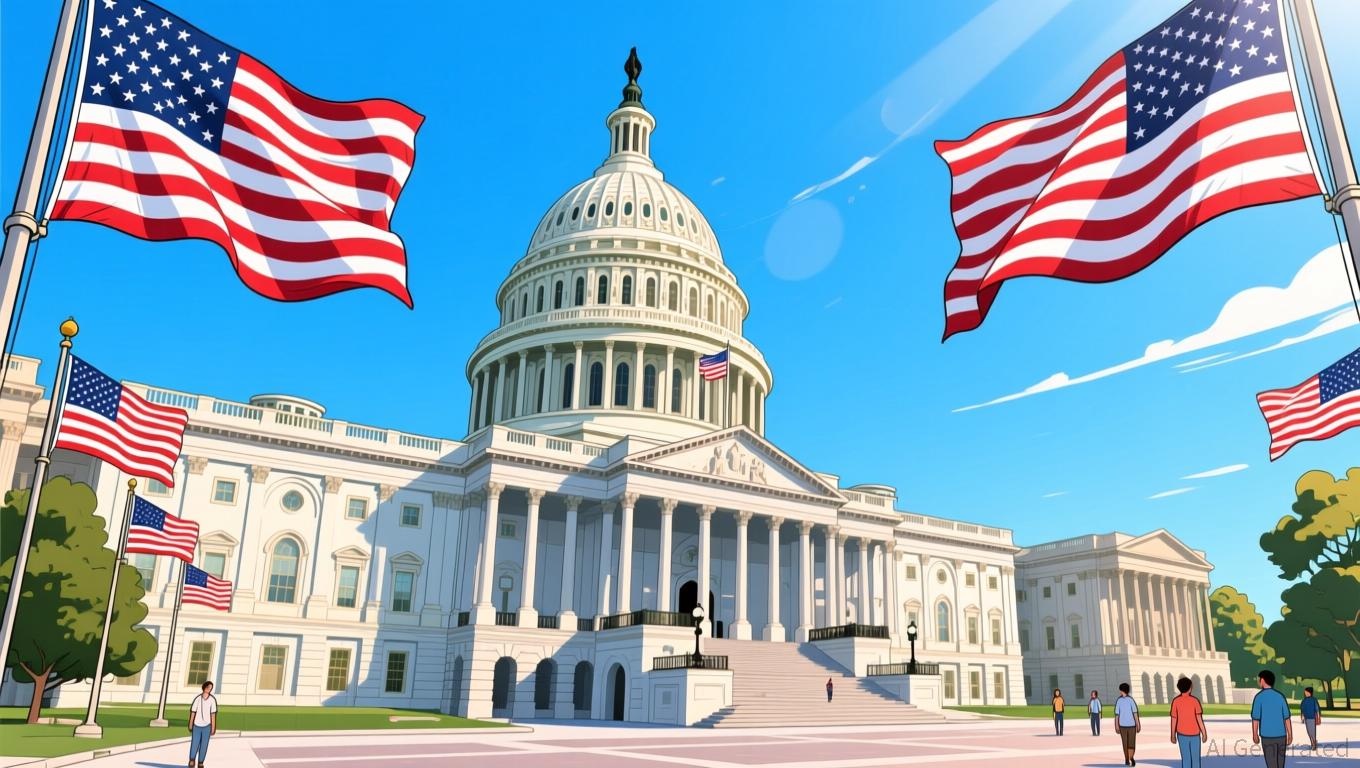Stargate’s AI Strategy: Safeguarding the Nation or Raising Antitrust Concerns?
- Stargate, a $500B AI joint venture led by OpenAI, Oracle , and Nvidia , aims to consolidate computing power across seven gigawatt data centers in the U.S. and UAE. - Yale scholar Madhavi Singh warns the alliance violates antitrust laws by merging fierce competitors, risking cartel-like behavior and stifling innovation in chips and cloud services. - Critics argue Stargate eliminates competition in key AI sectors, while the Trump administration and lawmakers praise it as a strategic move to counter China,
AI Competitors Join Forces on Stargate Project Amid Monopoly Fears as Yale Expert Raises Red Flags
A partnership among leading AI companies—including OpenAI,
The Stargate alliance brings together six major AI industry players, many of whom have overlapping or conflicting interests. For example, Oracle and OpenAI have previously competed for cloud service contracts, while Nvidia leads the GPU sector and

Singh’s research points to the danger of “cartel-like conduct,” where partners may coordinate pricing or share proprietary technology to remove competition. For instance, Oracle’s previous strategy of underpricing Microsoft in cloud services could disappear if both companies now cooperate within Stargate. Likewise, Microsoft’s efforts to develop its own GPUs to rival Nvidia may lose momentum if they work together under this alliance.
Despite these warnings, Stargate has encountered little pushback from regulators or politicians. The Trump administration has promoted the project as a key asset in the U.S.-China technology competition, and lawmakers such as Sen. Ted Cruz have called it a blueprint for “winning the AI race.” Even the FTC, which blocked Nvidia’s 2021 attempt to acquire Arm over monopoly concerns, has not commented on Stargate.
Globally, Stargate’s influence is growing. South Korea has recently agreed to work with the UAE’s Stargate AI campus, a five-gigawatt project led by Abu Dhabi’s MGX and U.S. collaborators like OpenAI and Nvidia.
The scale of Stargate—on par with the combined costs of the International Space Station and Saudi Arabia’s King Abdullah Economic City—has fueled further debate about its future effects. Singh argues that the project’s setup, which concentrates authority among a few corporations, could cement monopolies in the chip and cloud markets, where dominance is already significant. “This isn’t just about current competition,” she explains. “It’s about securing control for generations to come.”
As the global AI race intensifies, the Stargate story highlights a larger question: Can governments promote national security and economic growth without undermining the competitive forces that have historically driven innovation? For now, the answer is as unclear as the project’s internal decision-making.
Disclaimer: The content of this article solely reflects the author's opinion and does not represent the platform in any capacity. This article is not intended to serve as a reference for making investment decisions.
You may also like
Bessent: Raising the Debt Ceiling by July Is Essential to Prevent Market Turmoil
- US Treasury Secretary Bessent reiterated the economy is not at recession risk despite fiscal debates and market volatility. - He warned the debt ceiling must rise by July 2025 to avoid default, stressing "full faith and credit" is non-negotiable. - Corporate resilience (e.g., Ross Stores' strong earnings) contrasts with Fed policymakers' split on rate cuts amid inflation concerns. - Trump's $2,000 "tariff dividend" proposal faces congressional hurdles, with Bessent acknowledging it requires legislative a

Trump’s Andrews Golf Renovation: Who Pays the Taxpayer Tab?
- President Trump enlisted Jack Nicklaus to renovate aging golf courses at Joint Base Andrews, part of his White House-related construction projects. - The $300M+ portfolio raises questions about funding sources, mirroring controversies over unclarified costs for other projects like the Paris-style arch. - Nicklaus Design, with 425 global courses, will lead the overhaul despite Trump's claim of "very little money" needed, while critics scrutinize public-private spending blending. - The 15-mile White House-

Crypto Casinos Strive for Security, Fast Transactions, and Regulatory Reliability
- Crypto casinos face heightened scrutiny as demand grows for secure, efficient platforms prioritizing fund transparency and rapid withdrawals. - Coinbase's wallet migration highlights proactive security measures, aligning with crypto casinos' need for robust cybersecurity to protect user assets. - UK's NCA dismantled a $1B crypto laundering network, demonstrating blockchain traceability's role in combating crime and bolstering trust in compliant platforms. - BitForex's KYC enforcement and withdrawal updat

As Cancer Takes Her Life, JFK Descendant Opposes Cousin's Health Policies
- JFK's granddaughter Tatiana Schlossberg revealed terminal AML diagnosis, criticizing cousin RFK Jr.'s cuts to mRNA vaccine research funding critical for cancer therapies. - RFK Jr.'s HHS nomination faces scrutiny as his anti-vaccine policies align with CDC's revised guidelines, raising concerns about public health trust and research equity. - OCRA's new policy center and interactive map aim to accelerate cancer research access, responding to Schlossberg's advocacy for equitable clinical trial resources.
